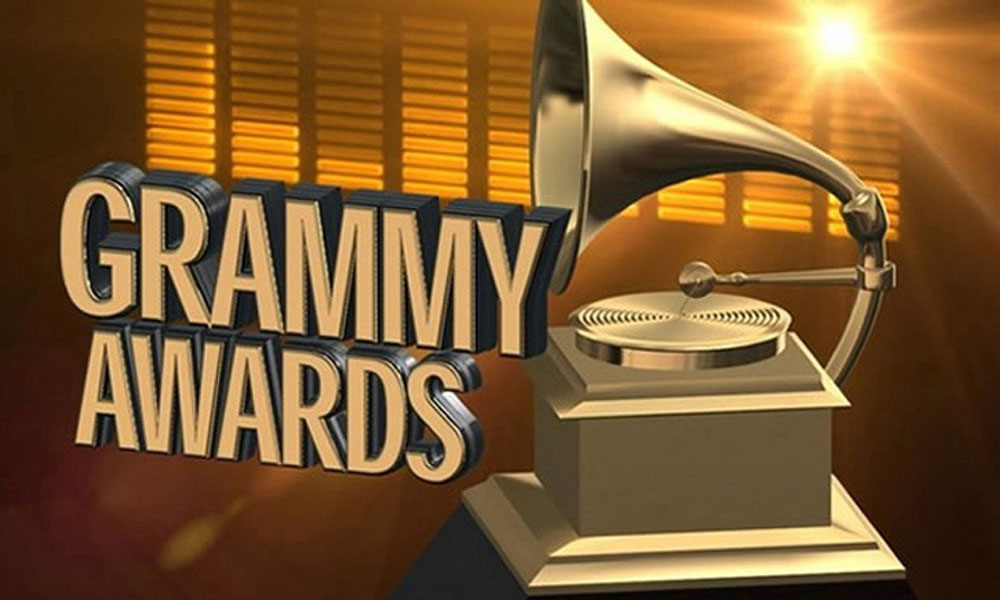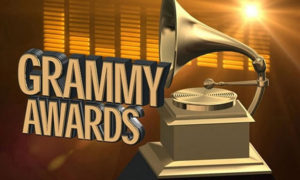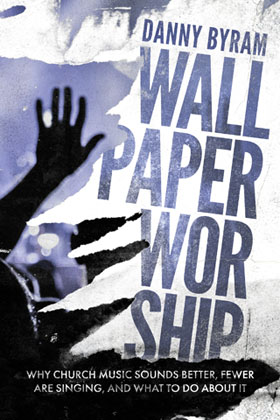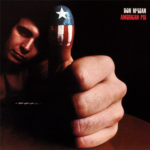loading...

by Danny Byram | Jan 27, 2020 | christian worship, christianmusic, church, Church Leadership, Contemporary, Leadership, Music & Songwriting, pastor, praise, wallpaper worship, Worship, worship songs, worshipleader, worshipmusic

The word worship has metamorphosed. It is one of those many words floating around that once had specific meaning but has culturally morphed into new relevance. Other examples: thread, stream, post – you get the idea.
Worship used to be primarily a verb – something we did corporately or privately when we gather into a house of worship. Now it is also a noun, a traded commodity, a multi-billion-dollar industry tied to the entertainment and production-gear retail world, akin to the latest talent reality shows, playing to millions of unnamed, anonymous online fans of worship songs and worship artists. Worship has become its own style of music.
Am I cynical or a realist? Probably both. Before you go off on me with this, first consider the reactions I frequently hear from semi-professional church musicians. They cringe at playing a hymn or any music piece outside the worship model. Yet, many equally cringe with many new songs they are required to memorize. Why the cringing? Musicians will confess – quietly, behind the scenes – the musicality of worship lacks in diversity or musical creativity. In other words, if they are honest, musicians will tell you that as a style of music, worship becomes quickly rote and predictable.

Example: I had to learn the latest 12-15 most popular worship songs for an upcoming conference. I found each song on YouTube and began my rehearsal. Most start with a low synth pad sound, covered in a breathy vocal line. Then follows the rhythmic groove with guitar, bass and drums. Each track has a simple riff (ie, a basic scale pattern meant to be a musical hook played by a lead guitar or piano). Many of these riffs are so similar, it’s difficult to discern which song I am in when I hear it. They are purposely simple so they can be reproduced by volunteer musicians possessing basic skill levels; I get it.
By the middle of the songs, vocalists are full voice, the band is playing the 1-4-6-5 chord progression (or 1-5-6-4, 1-6-5-4 or another variation). There is a full synth pad or guitar distortion pedal sound underlying everything to give a pop power-ballad sound. Eventually most songs will end as they start, finally capped with a cymbal-swell cadence, giving the audience their cue to applaud.
There you have it. Worship is a musical style, a specific sound. To use music outside this model in worship, or an original arrangement of a current song, risks being pegged as out of touch or old school. It assumes congregants will not accept anything other than “the way it sounds on the radio.” Flash: not all congregants listen to “worship radio” which may be why so many simply squint and stare during music segments.

It amazes me how many styles of music are out there, being enjoyed, EXCEPT in church. Watch the Grammy Awards or the Academy Awards show and count how many styles of music are used in these productions: acoustic, jazz, classical, choral, gospel, country, folk, hip hop, alternative, Broadway. There are so many great choices to enjoy, except in worship.
Recently I had a short-lived conversation with a leader of one of the big worship companies (I won’t name the company because you’d know them). I asked him, “What if an oboe or clarinet player came up to you in church and asked how he/she could fit into the worship ministry – what would you say?” His response: “I have no idea.”
“A garden’s beauty never lies in one flower.”
― Matshona Dhliwayo
I am dying to hear comments from anyone experiencing musical creativity in sound, style and execution in your worship services. Are you out there?

by Danny Byram | Dec 27, 2019 | Church Leadership, Gratitude, Happy New Year

With the dawn of each new year, the English-speaking world has a fascinating tradition. We stay up ‘til midnight, count down our time zone’s version of midnight, lift a glass of bubbly, kiss our sweetie, toast the new year, and sing a circa 1788 Scottish song that none of us understands, except maybe Scottish pastor Alistair Begg.
“Should auld acquaintance be forgot, and never brought to mind?
Should auld acquaintance be forgot, and auld lang syne!
CHORUS: For auld lang syne, my dear, for auld lang syne; We’ll drink a cup o’ kindness yet, for auld lang syne.”
Translation: “auld lang syne” means “days gone by.” In American English, the final line would render “we’ll drink a cup of kindness, to remember days gone by.”
What is implied in this auld song is that we are encouraging one another to remember the good times. Well, sure! Who wants to dredge up the mistakes of the past? However, the Bible assures us there is valuable perspective to be gained when we choose to recall both: the good and the not-so-good past. I experienced this truth when visiting a church in Virginia Beach that started with a bunch of surfer dudes…

SURFER DUDES AND BABES
This “surfer church” was birthed from a tiny group of Christians befriending surfer dudes and babes on the beach. Through the simplicity of friendship, young, tanned, stoned beach people encountered Jesus and a church was born, now a very large church.
During my visit to one Sunday School class, I met a professional-looking married couple. Their story: Decades ago, after high school, they lived together in a tent on the beach. He surfed while she created and sold seashell jewelry to buy food, booze, and pot. One day, someone shared Christ with them and their lives radically changed.
After the Sunday school class ended, we filed into the main sanctuary for corporate worship. As we sang “Amazing Grace,” the familiar lyrics rolled out of my mouth without a thought: “Amazing grace, how sweet the sound, that saved a wretch like me.” Yet I noticed as this couple sang, tears streamed down their faces. After the service, I asked them why they wept during Amazing Grace. They answered, “We will never forget how wretched our lives were before we met Jesus.”
That is the power of remembering “days gone by” (“auld lang syne”).
The Apostle Paul reminds us of how wretched we were before we knew Christ: “slaves of sin, children of darkness, deceived, tossed about, confused, enemies of God” (Ephesians 5). Such a list tempts us to ask, “But isn’t that negative? Why bring up those ‘days gone by?’” I understand. Recalling my own wretched past can cause me to pray for amnesia. Jesus’ visit to Simon the Pharisee’s home (Luke 7) is a bold illustration of the dangers of such amnesia:
“When one of the Pharisees invited Jesus to have dinner with him, he went to the Pharisee’s house and reclined at the table. A woman in that town who lived a sinful life learned that Jesus was eating at the Pharisee’s house, so she came there with an alabaster jar of perfume. As she knelt behind him at his feet weeping, she began to wet his feet with her tears. Then she wiped them with her hair, kissed them and poured perfume on them. When the Pharisee saw this, he said to himself, “If this man were a prophet, he would know what kind of woman is touching him!”
Jesus, knowing his thoughts, said, “Simon I have a story for you: two people owed money to a lender. One owed 500 and the other 50. Neither of them could pay, so the lender forgave the debts of both. Now which of them will love him more?” Simon replied, “I suppose the one who had the bigger debt forgiven.” Jesus said, “Correct. Do you see this woman? I came into your house and you gave me no water for my feet, but she wet my feet with her tears and wiped them with her hair. You did not greet me with a kiss, but this woman has not stopped kissing my feet. You neglected the courtesy of oil on my head, but she has poured perfume on my feet. Her sins – which are many – have been forgiven – so she has shown me much love. But whoever has been forgiven little, loves little.”
Simon the Pharisee was respected, wore fine robes, probably expensive rings, had a nice home with servants. But somewhere in his prosperous religious work, he lost perspective. He failed to remember he was as needy and sin-filled as the woman at Jesus’ feet. Kinda like me, when I sang Amazing Grace without a thought of its meaning.
The Apostle John’s word to the church in AD 95 is sobering to us religion-brokers in the 21st century: “You (church goers – church staffers) say: ‘I am rich. I have everything I want. I don’t need a thing.’ And you don’t realize that you are wretched, miserable, poor, blind and naked.” (Revelation 3)

CAN WE LISTEN TO SIDE “B” NOW?
Fortunately, there are two sides to remembering. Paul also lists who we are now in Christ: “joint-heirs, redeemed, children of light” – the list goes generously on. Remembering our identity can motivate us to adjust our behavior today in order to have no regrets in our future yesterdays.
So, on New Year’s Eve, let’s “drink a cup of kindness” to remember “days gone by” so we never forget how rescued we are from ourselves, our damaged legacies and the superficiality of life without Christ. Whether we sing “Auld Lang Syne” or “Amazing Grace,” let’s weep with gratitude that He has saved wretches like us. Happy New Year!


by Danny Byram | Nov 22, 2019 | Advent, christian worship, christianmusic, Christmas, church, Church Leadership, pastor, Worship, worshipleader

The first Christmas after my wife and I moved into a new community a few years ago, we attended a number of local Christmas worship services.
At one popular church, we were greeted by elves issuing earplugs at the doors. The lead guitarist illustrated his skill in pulling off a “Christmas-shredding-solo,” while the female lead singer pranced about the stage in skin-tight black leather with a red Christmas bandana across her head. To their credit, the Christmas story was read by the pastor, but he hesitated throughout the reading as he awkwardly tried to pause and pace for the canned video/musical cues that were supposed to match his narration. I felt like standing up and yelling, “Just read the story to us!”
In another church, we heard the Luke 2 narrative of the angels’ visitation of the shepherds in the field “keeping watch over their flocks by night.” She (an associate pastor) said, “those shepherds weren’t just frightened. They had the BA-JESUS scared out of them.” We left.
Finally, we attended another church with a more traditional approach. They performed a Christmas cantata, complete with orchestra, choir, soloists and narration. All the of the carols were performed for us, with the conductor turning around to cue the audience when we were allowed to sing along on one verse or a chorus (“Glo-o-o-o-o-or-or-or-or-or-o-o-o-o-oria”) – only to cut off the singalong, turn back around to re-cue the orchestra and choir for the next pre-arranged segment. As we stared mostly at the conductor’s backside all evening, listening to “Christmas-sung-for-us,” our daughter turned to me and said, “Dad, you talk about wallpaper worship? This is it!”
Each of these examples is real. Each happened within a few miles of our house. Recalling each experience gives me a feeling of dread as we stare at the upcoming Christmas season.
I have always felt there are certain holidays in our church-worship-year that nudge corporate worship to be executed differently than our regular weekly services. Christmas is the easiest of church holidays for church leaders to NOT screw up – but we manage to do so anyway. With all the latest worship resources, flashy gear, hip song arrangements and YouTube clips to mimic (posted by huge churches and commercial worship companies who have better talent and more money than most local churches have), it is tempting to employ every tool at our church’s disposal and unleash it all on our heaviest attended service.
With the retail world already unleashing Christmas hype on us by October, is being “unleashed on” what our congregants want or need on Christmas Eve? With all the noisy and crowded places church-goers frequent during the holidays (malls, shops, restaurants, parties) perhaps congregants would consider their church leadership incredibly creative and brave for delivering a Christmas Eve worship experience that’s simple, real and authentic.
You know…simple, real, authentic – kind of like how Jesus entered the world.
In her Washington Post op/ed a few years ago, millennial Rachel Held Evans wrote: “The trick isn’t to make church cool; it’s to keep worship weird. You can be dazzled by a light show at a concert on any given weekend, but church is the only place that fills a sanctuary with candlelight and hymns on Christmas Eve.”
This year – if you’re a leader – why not plan a Christmas Eve service that is simple, real and authentic? If you are an attendee, chances are good that you will leave a simple, real and authentic Christmas Eve service thinking: “Thank you! That was refreshing.”
“The perfect church service would have been the one we were almost unaware of; our attention would have been on God. But every novelty prevents this.” – C.S. Lewis
__________________________
If you are a leader in a smaller church (or you know one!) and you are wondering what to do for Christmas Eve, we are launching a 3-part online training course: LEADING A CHRISTMAS EVE SERVICE YOUR CONGREGANTS WILL THANK YOU FOR. This course will give you tips, ideas and proven principles that are usable in any church culture. The course launches Friday, November 22 and run through December 3. Cost: $99. Give your church a Christmas Eve service this year that they will thank you for. Sign up for the course HERE!

by Danny Byram | Oct 30, 2019 | christianmusic, church, Church Leadership, Contemporary, Liturgical, Music & Songwriting, pastor, Traditional, wallpaper worship, Worship, worship songs, worshipleader, worshipmusic

Ever been to a quiet, classy restaurant with your sweetie? White tablecloth – pressed napkins – two candles – rose in a vase. It’s relaxing just imagining it. Your well-dressed waiter appears and gives you the evening’s specials from memory. After taking your wine order, he leaves to allow you to choose your evening meal. You two are taking in the atmosphere: Low lights – smooth jazz in the background – and staring into the eyes of the only person you want to be with, in this setting.
As you begin your long-awaited conversation, the waiter returns to pour your wine and take your entrée order. He disappears and you continue to talk together, alone. The waiter returns to ask for a clarification, which you politely give. He leaves, your conversation resumes.
The waiter returns to repour your water glasses and asks how the wine tastes. You give him a positive nod. He then puts down his water pitcher, pulls up a chair and begins to explain the differences between California wine and Italian wine. He leaves again. You try to resume your conversation only to be interrupted again by the waiter serving the appetizers. He then gives you a full description of where the pigs, used in your bacon-wrapped appetizer, were raised and fed. He leaves. You try to remember where you left your conversation, only to be interrupted again by the delivery of your entrees. This time the waiter doesn’t leave. He sits in the chair he previously pulled up, watches you eat, and gives you factual information of how the chef prepared your meal.
The point of your evening is lost. The interruptions have broken the intimate conversation you came to enjoy.
Worship can be like that.
On Sunday, at church, the musicians have chosen a great set of songs. They tastefully lead you, the worshiper, to a place of intimacy, devotion, and readiness to receive something spiritual. You are poised. You are ready. Like the soft jazz in the restaurant, the keyboardist is padding quietly.
Suddenly, the associate pastor jumps on the stage: “Everybody having a good time? Hey! How many of you have signed up for the All-Church Retreat? Lemme see the hands. Woo-hoo! Also, we need more workers in the nursery. It’s a great way of serving and you’ll be blessed. Sign up in the lobby. And for anyone who’s into communion, make sure you grab a wafer pak in the baskets by the doors at some point during the service. Now give someone a HIGH FIVE!”
I call this WORSHIP INTERRUPTUS. It happens too often.
Back to the restaurant: You came to have a meaningful, intimate experience with the love of your life – only to have it shanghaied by an obnoxious waiter.
Back to the church: You came to have a meaningful, intimate experience with the Love Of Your Life (Jesus Christ), only to have it shanghaied by a leader who fails to understand the importance of FLOW OF SERVICE, PLATFORM ETIQUETTE, INTIMACY VERSUS INTERRUPTUS.
When we as platform leaders take our people to a vertical point in time – a moment of spiritual readiness – and then immediately reverse that moment, we jerk our congregants from vertical to horizontal – from heaven to earth – from God to one another – from one another to an annoying “waiter” on the platform.
This isn’t rocket science. Yet, its frequency is disturbing.
The Apostle Paul admonishes his confused congregants and frustrated leaders at the church in Corinth: “All things should be done decently and in order.” (I Corinthians 14:40) King Solomon understood the bigger picture: “There is a time to weep and a time to dance; a time to keep silent and a time to speak.”
“Oh, I know,” church leaders say. “Where to put the announcements is a constant struggle.” There are many solutions to this problem and one size does not fit all. But wherever we put announcements, we must not lose sight of the larger purpose of our gathering: to lead the sheep to the living water, so they can actually drink it.
“For everything there is a season, a time for every activity under heaven.” Ecclesiastes 3

by Danny Byram | Oct 2, 2019 | christian worship, christianmusic, Church Leadership, Leadership, wallpaper worship, Worship, worship songs, worshipleader, worshipmusic

It takes a lot of tools to build a house: router, drill, generator, roofing nailer, finish nailer, framing nailer, air compressor, chainsaw, jigsaw, reciprocating saw, circular saw, chop saw, levels, diagonal pliers, wire strippers, box nose pliers, linesman pliers, needle nose pliers, adjustable wrenches, chisels, socket set, tin snips, shovels, rakes, extension ladder, step ladder, sledgehammer, keyhole saw, hacksaw, utility knife, bolt cutter, chalk line, hand saw, tape measure, hammer.
There are also tools we need to use if we are going to lead congregants in worship.
If you’re a worship leader (or you know one you can share this with…) pay attention: Your congregants want to participate. But if your weekly reality reveals your people are not following but simply observing, then what’s the point of being a “leader of worshipers?” There may be some basic tools you are missing or not using.
Jesus said, “My Father is seeking worshipers who will worship Him in spirit and truth.” It may be a blow to our egos to point out He did not say “the Father is seeking more worship leaders.” Ultimately, He wants to hear from those in our audience, not just those who lead them.
If you are of the tribe that takes the idea of worship leadership seriously, come aboard for my free webinar. You’ll learn three basic tools that must be in your tool belt if you are going to build a church that is full of participants, not just observers. Get the tools you need to build a house of participation, not just a venue of observation.
Register here: FREE WEBINAR WITH DANNY
Hurry. The webinar opens FRIDAY OCT 4!






















